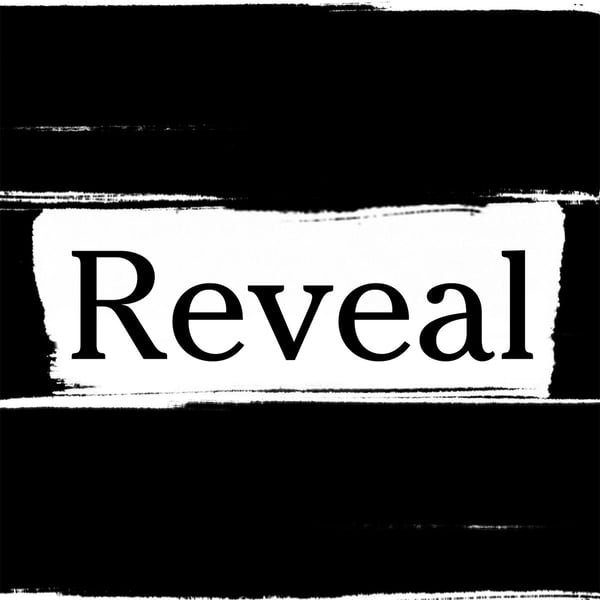Fighting Fire with Fire
Reveal
The Center for Investigative Reporting and PRX
4.7 • 8K Ratings
🗓️ 4 June 2022
⏱️ 53 minutes
🧾️ Download transcript
Summary
Year after year, wildfires have swept through Northern California’s wine and dairy country, threatening the region’s famed agricultural businesses. . Evacuation orders have become a way of life in places like Sonoma County, and so too have exemptions to those orders. Officials in the county created a special program allowing agricultural employers to bring farmworkers into areas that are under evacuation and keep them working, even as wildfires rage. It’s generally known as the ag pass program. Reporter Teresa Cotsirilos investigates whether the policy puts low-wage farmworkers at risk from smoke and flames. This story is a partnership with the nonprofit newsroom the Food & Environment Reporting Network and the podcast and radio show World Affairs.
Then KQED’s Danielle Venton introduces us to Bill Tripp, a member of the Karuk Tribe. Tripp grew up along the Klamath River, where his great-grandmother taught him how controlled burns could make the land more productive and protect villages from dangerous fires. But in the 1800s, authorities outlawed traditional burning practices. Today, the impact of that policy is clear: The land is overgrown, and there has been a major fire in the region every year for the past decade, including one that destroyed half the homes in the Karuk’s largest town, Happy Camp, and killed two people. Tripp has spent 30 years trying to restore “good fire” to the region but has faced resistance from the U.S. Forest Service and others.
Twelve years ago, the Forest Service officially changed its policy to expand the use of prescribed burns, one of the most effective tools to mitigate massive, deadly wildfires. But Reveal’s Elizabeth Shogren reports that even though the agency committed to doing controlled burns, it hasn’t actually increased how much fire it’s using to fight fire. The Forest Service also has been slow to embrace another kind of good fire that experts say the West desperately needs: managed wildfires, in which fires are allowed to burn in a controlled manner to reduce overgrowth. To protect the future of the land and people – especially with climate change making forests drier and hotter – the Forest Service needs to embrace the idea of good fire.
This is a rebroadcast of an episode that originally aired in September 2021.
Support Reveal’s journalism at Revealnews.org/donatenow
Subscribe to our weekly newsletter to get the scoop on new episodes at Revealnews.org/weekly
Transcript
Click on a timestamp to play from that location
| 0:00.0 | Hey, hey, it's Al and for nearly four years, |
| 0:04.2 | Reveal reporter Will Evans has pushed through layers of secrecy and hype |
| 0:09.2 | to find out what's really going on in Amazon. |
| 0:12.4 | After exposing its warehouse safety crisis, |
| 0:14.8 | and Amazon's attempt to hide it, |
| 0:17.0 | Will showed how Amazon failed to protect the data of its customers and sellers. |
| 0:22.6 | And then he looked at Amazon's climate impact |
| 0:25.2 | and found it was drastically undercounting its carbon footprint. |
| 0:29.6 | The deeper the truth is buried, the harder will dig to find it. |
| 0:34.0 | But we need your support to continue this work in 2023. |
| 0:38.0 | Please donate to support journalism like this, journalism that perseveres. |
| 0:43.4 | Just go to revealnews.org slash 2023. |
| 0:46.7 | Again, thank you. That's revealnews.org slash 2023. |
| 0:51.4 | And thanks. |
| 1:03.3 | From the Center for Investigative Reporting in PRX, this is Reveal. |
| 1:07.8 | I'm Al Letson. |
| 1:11.0 | Booker Farms is part vineyard part dairy. |
| 1:14.0 | It's in Sonoma County, California in wine country with rolling green hillsides. |
| 1:19.2 | It's beautiful. |
| 1:20.8 | But in August 2020, it was in flames from what was known as the LNU Lightning Complex Fire. |
| 1:28.2 | A farm worker and his wife taped a video of what was happening on their phone. |
| 1:34.8 | See. |
... |
Please login to see the full transcript.
Disclaimer: The podcast and artwork embedded on this page are from The Center for Investigative Reporting and PRX, and are the property of its owner and not affiliated with or endorsed by Tapesearch.
Generated transcripts are the property of The Center for Investigative Reporting and PRX and are distributed freely under the Fair Use doctrine. Transcripts generated by Tapesearch are not guaranteed to be accurate.
Copyright © Tapesearch 2025.

